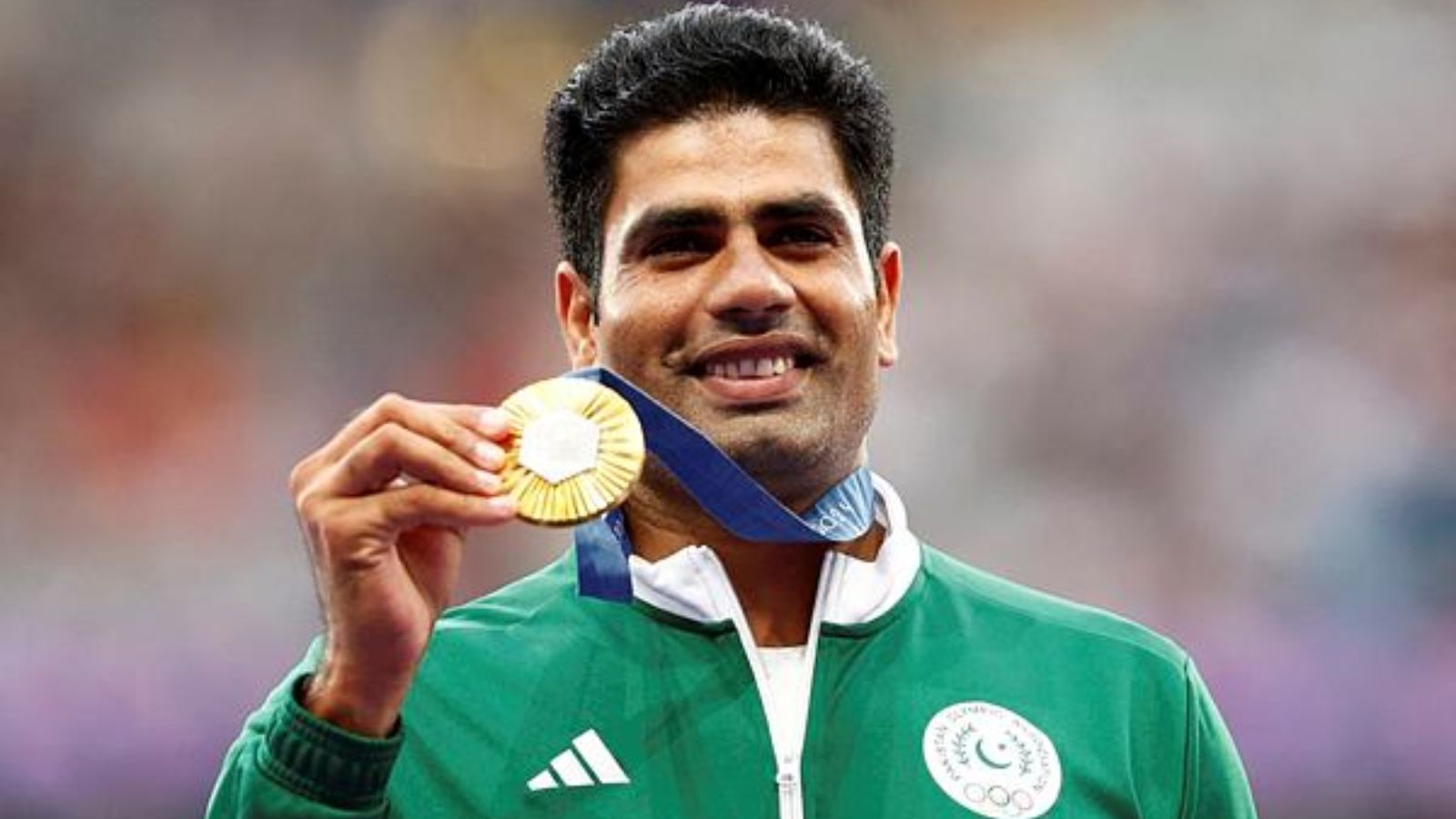Two days ago, on August 8, Pakistan’s Arshad Nadeem made history by securing the first gold medal since 1984 for the country in the Olympics. The last time Pakistan won any medal at all at the Games was a bronze in hockey in 1992. With a record throw of 92.97m, the 27-year-old beat reigning champion India’s Neeraj Chopra putting Pakistan on the podium. His feat is all the more remarkable given where he started — hailing from a village near Mian Chunnu.
Dawn (August 10) discusses how Arshad had to go the “hard route” making do “with substandard facilities and few funds, at one time even struggling to get a javelin.” This is indeed a “watershed moment for sports in Pakistan.” However, “it should force a rethink by the government and the sports authorities about how to better fund Pakistan’s athletes, because it is they who deliver the glory.”
Echoing similar sentiments, News International (August 10) calls Nadeem “the hero Pakistan desperately needed, though whether we deserve him is debatable given the way the state has treated our athletes.” Commending his determination while slamming the government’s inadequate support, the editorial writes: “Arshad Nadeem in many ways probably epitomises what being a Pakistani means: Exhausted, deprived of top-class facilities, and with no backing of an indifferent state — and yet determined to chase his/her dreams and passion.”
Abrogation of Article 370
August 5, 2024, marked the fifth anniversary of the abrogation of Article 370 in Jammu and Kashmir. The Narendra Modi government scrapped the state’s special status in an effort to spur development and establish peace in the region. According to Pakistan, this was India “in effect annexing the territory despite its [the state’s] disputed status as per international consensus” (Dawn, August 7).
The Nation (August 5) says that this approach “mirrors tactics used by other occupying forces around the world.”
Advocating for the right of self-determination for the Kashmiri people, the editorial says, “Kashmir, like Palestine, is a conflict driven by a people’s struggle for self-determination against a brutal occupation that seeks to subjugate them through force.”
Dawn (August 7) asserts the need for dialogue between the two countries to “set in motion the process of normalisation in the subcontinent.” The restoration of “both missions to their full diplomatic strength” as a “confidence-building measure”, the editorial suggests “can be a starting point for rebuilding better ties.”
UK riots and Islamophobia
Last week, a 17-year-old forcibly entered a dance studio in Southport, UK and stabbed three girls to death. Ten others were severely injured. The accused was falsely identified as a Muslim immigrant and asylum seeker of South Asian or Middle Eastern origin leading to far-right protests across the country. This incident brings into sharp focus the “racist underbelly” of the UK and highlights the rising Islamophobia across the world.
Express Tribune (August 6) says, “While the government’s decision to increase security around mosques and PM Starmer’s unequivocal assertion that he would do ‘whatever it takes to bring these thugs to justice’ have established some trust in the government, there is still concern over the slow pace of action against the instigators.” Cautioning against increasing “British ultranationalism”, the editorial stresses that “the Labour Party needs to use its overwhelming majority to dismantle the far right now, before it grows into something more organised, and much more dangerous.”
Expressing concern for Muslims in the UK, News International says, “Given the many thousands taking part in the riots, it is safe to assume that the ‘far-right’ narratives against Muslims have a much wider appeal than was previously thought.”
A fallen government
Amid escalating protests triggered by a High Court ruling in Dhaka that granted 30 per cent reservation for government jobs to descendants of veterans who fought in Bangladesh’s war of independence in 1971, Prime Minister Sheikh Hasina was forced to flee the country. Student protestors, enraged by the rising unemployment, inflation and quotas that denied jobs to many, had been agitating for weeks leading to Hasina imposing a curfew and giving shoot-at-sight orders. But when they stormed her official residence in Dhaka, the prime minister had no choice but to leave. The media in Pakistan discusses what this means for both Pakistan and India.
The Nation (August 6) says that in her 15-year-rule, “Sheikh Hasina had steadily consolidated power, marginalised other groups, and targeted opposition parties, particularly Jamaat-e-Islami.” But “such events should serve as a warning to oppressive regimes worldwide.” In terms of optics, it seems “Sheikh Hasina’s flight to India has reinforced perceptions of her alignment with Indian interests over Bangladeshi ones.”
Daily Times (August 8) considers the possibility of opposition leader Khaleda Zia’s elevation to prime minister saying, “If she manages to rise to power, Pakistan would do well to extend the first olive branch and forget the past grievances in order to re-establish itself as the voice of reason.”
adya.goyal@expressindia.com



